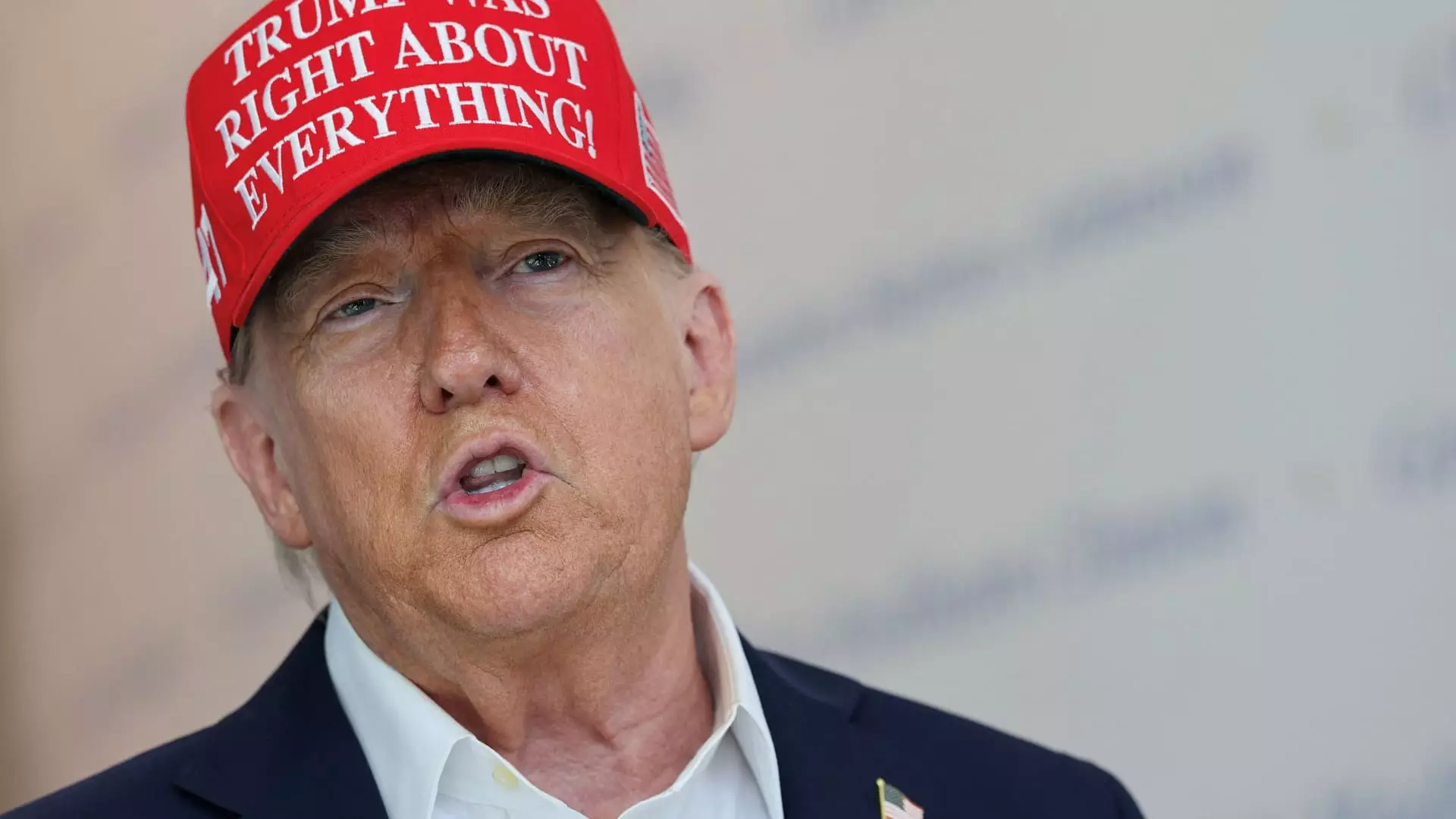In a stark display of political theater, Donald Trump has publicly declared his intent to remove Federal Reserve Governor Lisa Cook if she refuses to resign amidst serious allegations. This confrontation underscores a troubling pattern where partisanship threatens the independence crucial to the Federal Reserve’s functionality. Traditionally, the Fed’s autonomy has been respected to shield monetary policy from political swings, but recent events suggest a deliberate effort by the Trump administration to manipulate the board for ideological gains. Trump’s characterization of Cook’s actions as “bad” and his direct threat to fire her reveal a diminished respect for the institutional integrity of the central bank. Such interference dilutes the principle that monetary policy decisions should be insulated from political vendettas, risking unpredictable repercussions for the economy.
This reaction is less about the specific allegations against Cook and more about strategic control. By targeting a Governor aligned with Powell’s stance—maintaining interest rates steady—Trump signals a desire to infuse the Fed with more reliably conservative or populist voices that align with his economic priorities. If successful, this move would not only influence immediate policy directions but also shape the marketplace psyche for years, tilting the balance toward policies that favor Republican economic agendas over neutral, data-driven decisions. Firing a sitting governor through such politically charged allegations embodies a dangerous precedent where personal politics threaten the stability of a career-long institution.
Manipulating the Power Dynamic: Strategic Appointments and Ideological Control
The opportunity to replace Cook opens the possibility for Trump to cement a majority of Fed governors who share his skepticism of current monetary policy. Historically, the Fed aims for balance—appointees from different backgrounds and philosophies—yet Trump’s approach appears to be overtly partisan, eager to install “friendly” lawmakers who will prioritize inflation control and economic nationalism. Such manipulation is particularly significant given the 14-year terms on the board, implying a long-term impact far beyond Trump’s presidency. The appointment of like-minded individuals could tilt the policy landscape to favor rapid rate cuts, reduced regulation, or other initiatives aligned with conservative economic ideology.
This strategy represents an attempt to leverage the appointment process to influence the economic narrative for years ahead. The ripple effects extend beyond the immediate political battles; they threaten to undermine the credibility of the Fed as an independent arbiter. If politics dominate the selection of governors, the risk of policy being driven by short-term electoral gains rather than economic stability increases, possibly leading to more volatility and uncertainty in financial markets. Trump’s drive to fill gaps on the board with sympathetic voices shows a desire for centralized control over economic policy—a hallmark of centralized power politics, with the Fed’s independence caught on the losing end.
The Allegations and Political Opportunism: A Dangerous Game
The controversy surrounding Lisa Cook’s alleged mortgage fraud is a focal point of the current conflict. Critics on the right and left view the accusations as politically motivated attempts to discredit her and, by extension, the Federal Reserve’s current direction. Bill Pulte’s public accusations, along with the criminal referral to the Department of Justice, seem less rooted in judicial concern than in an opportunistic desire to tarnish her reputation and influence policy outcomes. For Trump and his allies, personal attacks morph into tactics to justify her removal and reinforce their narrative that the Fed is inherently biased or corrupt.
However, these tactics threaten to erode public confidence in financial institutions at a time when economic stability should be prioritized. By politicizing allegations, Trump not only risks diverting attention from substantive economic issues but also elevates personal disputes over institutional governance. His crusade against Cook exemplifies a broader trend where economic debates become battlegrounds for political power grabs, compromising the long-term health of financial regulation and monetary stability.
The Broader Implication for Federal Monetary Policy
While Trump’s interference is driven by a desire for control, the implications for monetary policy are far-reaching. The Fed is currently navigating a delicate balance—trying to fight inflation without triggering a recession, even as downside risks grow. The appointment or removal of key governors can significantly tip this balance. Introducing ideologically aligned appointees may lead to more aggressive or potentially destabilizing monetary policies, risking inflationary spirals or market panic.
At stake is the reputation of the Fed as a guardian of economic stability, capable of making decisions based on data rather than political expediency. Trump’s aggressive push to reshape the board suggests a willingness to undermine that reputation to serve immediate partisan interests. Such actions could open the floodgates for future political interference, weakening the institutions designed to keep the economy resilient in turbulent times.
While many admire the president’s boldness, this approach embodies a dangerous miscalculation: the assumption that central banks can be manipulated without long-term consequences. History warns that politicization of monetary policy often results in instability, unpredictable market reactions, and erosion of trust. As the political clash intensifies, the heart of responsible economic stewardship—independent, professional decision-making—becomes collateral damage in the pursuit of partisan power.

